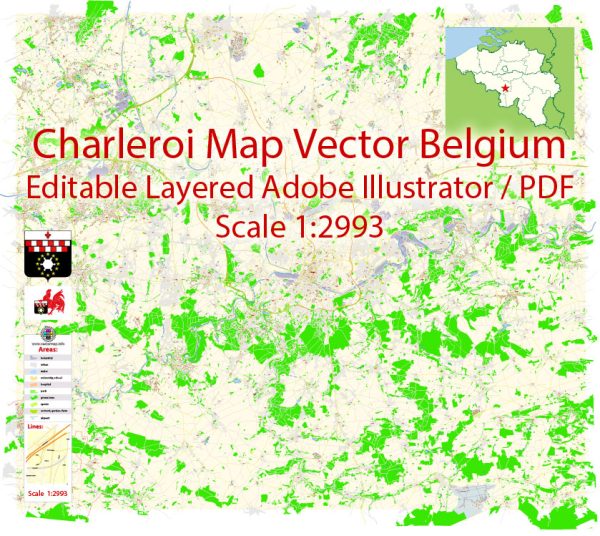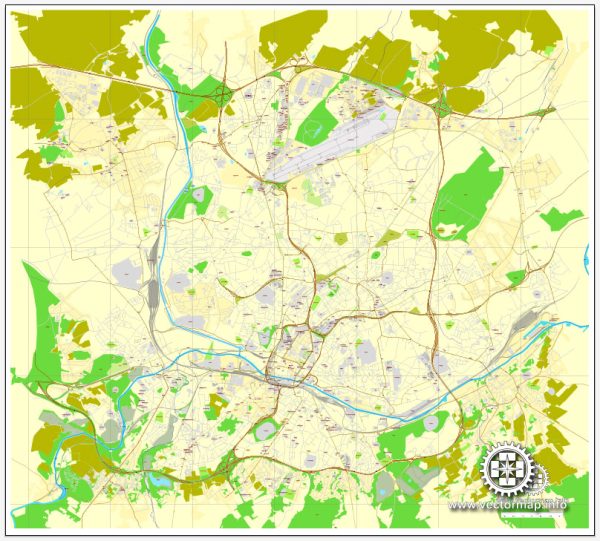Charleroi, located in the Wallonia region of Belgium, has a long and rich history as an industrial hub. Its industrial development began in the 19th century and was closely tied to the coal and steel industries. Here’s an overview of the industrial history and landscape in Charleroi:
- Coal Mining: Coal mining was one of the primary industries in Charleroi and the surrounding region. The discovery of coal in the area in the 18th century led to the establishment of numerous coal mines. These mines played a crucial role in powering the Industrial Revolution in Belgium. However, the coal industry declined significantly in the second half of the 20th century, leading to the closure of many mines.
- Steel Production: Charleroi was also known for its steel industry, with several steel mills and factories in the region. These facilities produced steel for various applications, including construction, machinery, and transportation. While the steel industry has faced challenges over the years, it remains a part of Charleroi’s industrial landscape, albeit at a reduced scale.
- Heavy Industry: The city was home to a wide range of heavy industries, including manufacturing and engineering. This sector included the production of machinery, equipment, and chemicals, contributing significantly to the local economy.
- Manufacturing and Industrial Zones: Charleroi and its surrounding areas host various industrial zones and parks, which are home to a diverse range of manufacturing and industrial activities. These areas provide a conducive environment for businesses to thrive.
- Post-Industrial Transformation: Like many other industrial cities, Charleroi has undergone a process of post-industrial transformation. In recent years, there has been an emphasis on diversifying the local economy and transitioning toward more sustainable and knowledge-based industries. Efforts have been made to attract technology companies, research institutions, and businesses in sectors such as aerospace, logistics, and renewable energy.
- Logistics and Transportation: Charleroi’s strategic location, with its international airport (Brussels South Charleroi Airport) and well-connected transportation infrastructure, has made it a significant logistics and transportation hub. This has contributed to the city’s economic diversification.
- Urban Revitalization: In addition to economic diversification, Charleroi has also focused on urban revitalization and improving the living conditions of its residents. Various projects have aimed at transforming old industrial sites into cultural and recreational areas, as well as green spaces.
While Charleroi’s industrial landscape has evolved over the years, it remains a vital part of the region’s economy. The city continues to adapt to changing economic trends, seeking to combine its industrial heritage with a more modern, sustainable, and diversified economic base.



 Author: Kirill Shrayber, Ph.D. FRGS
Author: Kirill Shrayber, Ph.D. FRGS